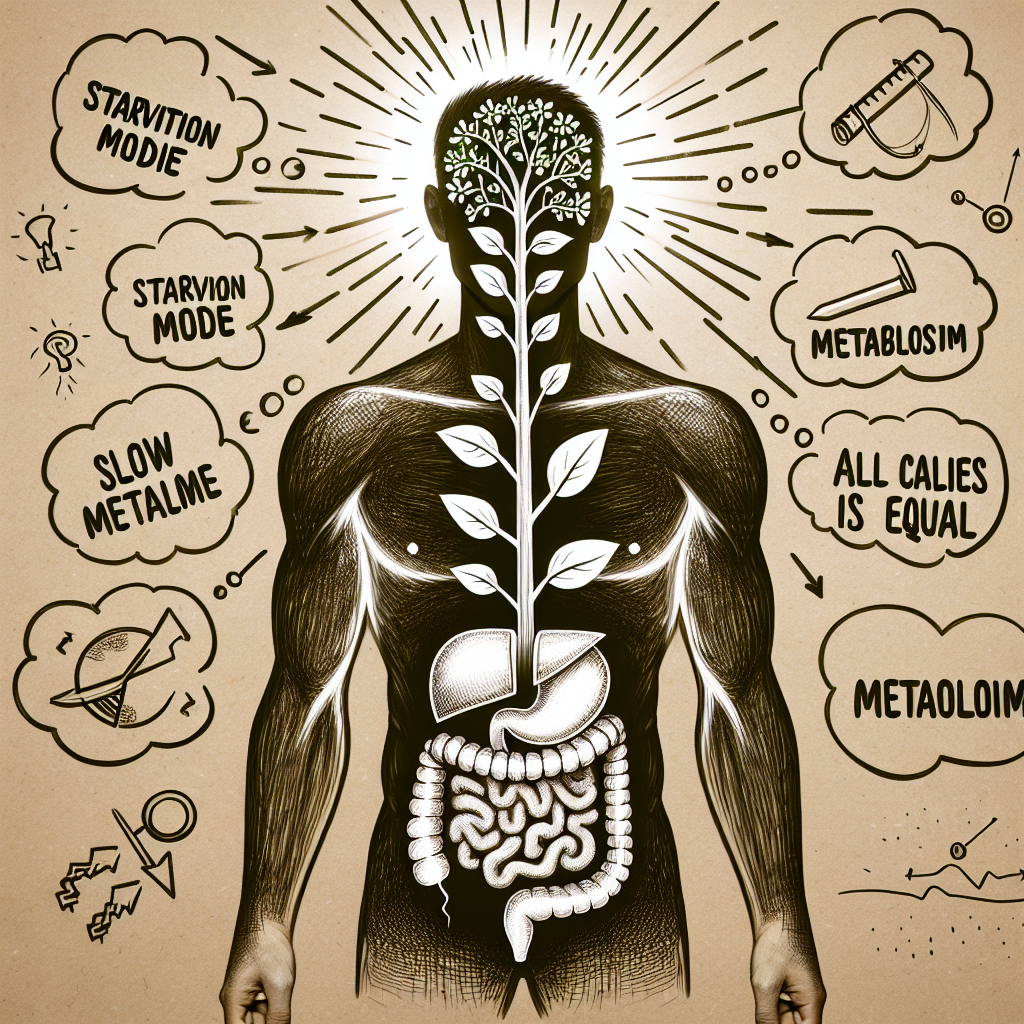### The Pursuit of Optimal Health: Debunking Metabolism Myths
Every day, we are inundated with massive amounts of information regarding health, wellness, and especially metabolism. Buzzwords like “superfood,” “fat-burning,” and “boost your metabolism” often make the headlines. But what’s really behind all the hype? In today’s post, we will explore some common metabolism myths and uncover the scientific facts.
**Myth 1: Skinny People Have a Faster Metabolism**
Many people assume that skinny individuals must have a ‘fast metabolism,’ meaning they burn calories more quickly than their heavier counterparts. Yet, scientific evidence tells a different story.
In actuality, the more mass an individual has (whether fat or muscle), the faster their metabolism will be. Large bodies need more energy to carry out fundamental biological processes, thereby burning more calories even at rest.
**Myth 2: Eating Small, Frequent Meals Will Boost Your Metabolism**
The idea that eating small, frequent meals will ‘rev up your metabolism’ and promote weight loss is another common myth. According to scientific research, meal frequency doesn’t significantly affect calorie burn rates.
While it’s true that your metabolism increases slightly when you eat (due to the thermic effect of food), the increase is proportional to the calories you’re consuming. So, whether you choose to eat three meals a day or six small ones, your metabolic rate will likely be the same.
**Myth 3: Certain Foods Speed Up Your Metabolism**
From spicy foods to green tea and dark chocolate, many foods are touted as metabolic boosters. While it’s accurate that these foods may increase metabolism slightly, they are unlikely to have a significant impact on weight loss.
Spicy foods and caffeine, for instance, can indeed increase your metabolic rate, but the effect is often minimal and short-lived. Furthermore, the number of extra calories they help you burn is relatively insignificant.
**Myth 4: Late-night Eating Slows Down Your Metabolism**
Contrary to the popular belief that eating late at night will ‘bog down your metabolism’ and lead to weight gain, there’s no scientific evidence to back up this claim. Your metabolism doesn’t ‘clock out’ for the night. It continues to break down and utilize nutrients, regardless of the time of day you consume your meals.
However, it’s worth noting that people who eat late at night often choose high-calorie snacks, which can contribute to weight gain. In essence, what you eat is far more important than when you eat.
While there’s a kernel of truth in some metabolism myths, remember to take them with a grain of salt. There isn’t a ‘one-size-fits-all’ strategy to speed up your metabolism. In the pursuit of optimal health, a balanced nutrition plan and regular physical activity remain the gold standards. Stay informed, ask questions, and don’t fall for the hype.


